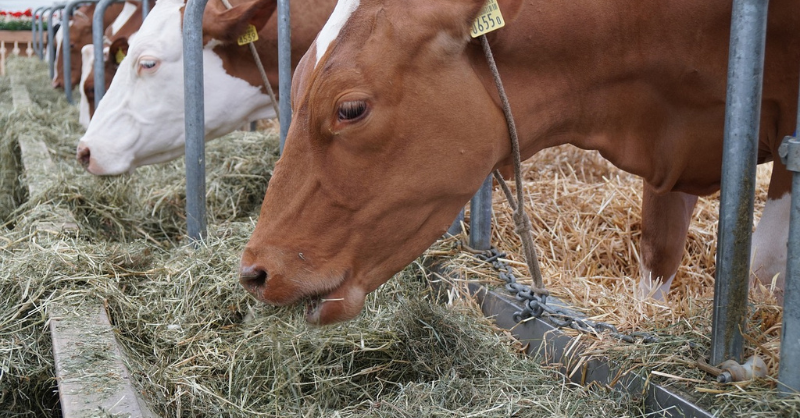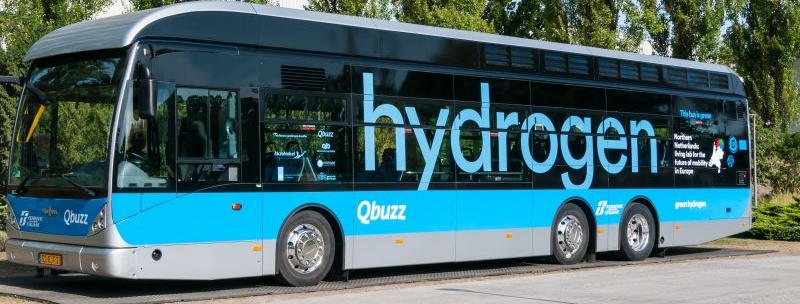
Stopping cows from burping.
Could gene editing could solve the cow methane problem? Although innovation sometimes over promises and under delivers, there are times when it's necessary. When the alternatives are unlikely to get delivered at the scale we need. And cow based methane looks like just such a case.
The average cow produces around 100 kg of methane per year, or around half the emissions of an average car. According to the Food and Agriculture Organization, cows are currently responsible for around 4% of global warming. And contrary to popular opinion, they burp it out.
This is one argument as to why we should consume less red meat, and maybe fewer diary products (another argument is our health - but that's a debate for another day). But that's not going to be easy to deliver. So what if we had an innovation that got cows to burp less?
The good news is that it appears that adding seaweed, oregano, or garlic to cow diets can cut methane emissions, sometimes by up to 80%. The bad news is that most cows, somewhere around 90%, survive outdoors on grass and forage. So getting the seaweed etc into enough cows is a challenge.
Which is why an article in Stuff NZ (from the Washington Post) caught our eye. Researchers in the US are looking at ways that we can use tools that snip and transfer DNA, to genetically engineer microbes in the cow stomach to eliminate those methane emissions. So possibly a solution that could work for most cows, even those that graze?
This is a What Caught Our Eye story - highlighting reports, research and commentary at the interface of finance and sustainability. Things we think you should be reading, and pointing out the less obvious implications. All from a finance perspective.
It's free to become a member ... just click on the link at the bottom of this blog or the subscribe button. Members get a summary of our weekly posts, including What Caught Our Eye and Sunday Brunch, delivered straight to your inbox. Never miss another blog post !
Making your hamburger less bad for the planet
Researchers at University of California at Davis and the Innovative Genomics Institute are investigating ways to use genetically engineered microbes in the cows gut, so that they produce less methane, maybe a lot less. It's a seven year project that only started last year. But the team seems hopeful that they could have a trial treatment ready for testing in cows in the next couple of years.

The science is both simple and complex. A cow's gut is a mixture of bacteria, fungi, and archaea (single celled organisms). How they all work together is a subject we know surprisingly little about.
The team is dosing the cows with seaweed oil, and then looking to see what changes it creates. Without the seaweed oil, as the cow ruminates (breaks its food down) it produces hydrogen as a byproduct. And it looks as if the seaweed oil blocks an enzyme that the archaea use to process hydrogen. That leaves more hydrogen for the bacteria, such as duodenibacillus. And the good news, this bacteria doesn't turn the hydrogen into methane, it produces more energy.
This is the process that the researchers hope to mimic via gene editing. It's not clear if this change can be made permanent. After all these microbes have had millions of years to develop. But the hope is that the treatment can be applied just once, as an early life probiotic.
For investors, this project raises all sorts of issues. The obvious one is could it work? But what if it does, would this make the current treatments, such as seaweed, obsolete ? Or is there a place for both treatments?
And even if it does replace seaweed, what would the cost implications be. Would it be priced for the North American and European markets ie expensive per cow? And if so how might you get it out there into the wider market, into enough cows to make a difference.
And if the trial starts in say 2 years time, will investors now pull away from scaling up seaweed based treatments, only to find that the trial didn't work?
One thing I am pretty sure of - this probably stands more chance of reducing methane emissions from cows than trying to get people to eat less red meat. Plus of course diary products. Getting people to change their diets is tough. Arguing that it's good for their health and for the planet is a hard sell. It doesn't mean we shouldn't try. It would be a good outcome for all sorts of health reasons. But we shouldn't rely on it to help with the GHG emissions challenge.
Just for a frame of reference, a recent Our World in Data chart shows those countries where meat consumption is currently high...

One last thought
I am a bit of an innovation sceptic. It's not that I don't see the benefits, I agree that innovation can potentially solve some of the world's biggest challenges. And I agree, innovation has moved us a long way forward in areas such as transport, and electricity generation.
My issue is a bit different, it's how we can also use it as a smoke screen. A way of persuading ourselves that we are working on fixing a problem, when in fact all we are doing is kicking the can down the road. I think it's incumbent on us all, not just investors, to be skeptical.
The skeptic does not mean him who doubts, but him who investigates or researches, as opposed to him who asserts and thinks that he has found. Miguel de Unamuno 1925

In this case I feel more positive. Yes, it doesn't solve the health and agricultural issues related to farming animals for meat (and diary). But my believe is that most sustainability challenges will need a portfolio of solutions. Waiting for the one perfect answer could mean we do nothing. I would rather do something that was imperfect.

Please read: important legal stuff.



